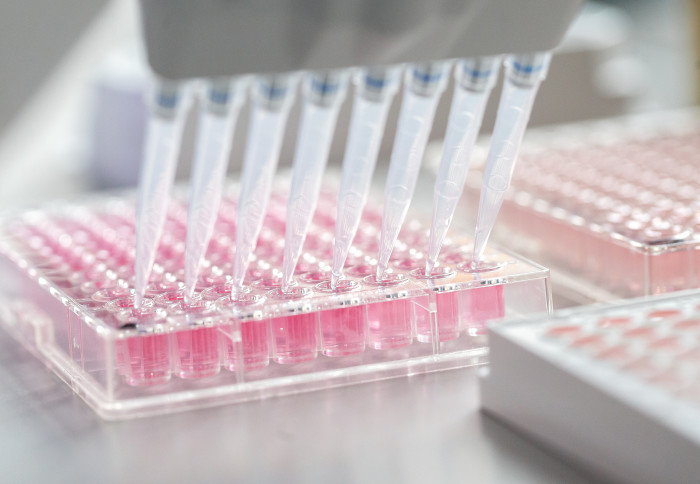$2 million investment for study investigating how vaccines work inside cells
by Emily Head

A new $2 million project will help study how our ancestry and diversity influence the way vaccines work in our cells.
The aim of the new project – the Lymph nodE single-cell Genomics AnCestrY (LEGACY) Network – is to better understand and predict how individual cells in the lymph nodes respond to vaccination.
“This is a wonderful opportunity to engage with pressing questions for vaccine and single-cell science that have real significance for public health." Dr Katrina Pollock Chief investigator of the new study
The project will involve a study of 30 people. Participants will donate cells from a blood test and a lymph node test before they receive a seasonal influenza vaccine, and then donate samples again a few days after the vaccine. These cells will be analysed in detail, one at a time, to determine which have responded to the vaccine and how they have responded.
The researchers say that their findings will help build a fuller picture of the immune system and its responses in a range of people of different backgrounds, particularly people from BAME backgrounds who have previously been underrepresented in this kind of research. This will help to answer key questions in immunology, as well as helping in the design of vaccines.
Map of cells and their responses
The project will also create a universally available atlas of cell-level responses to commonly used vaccines as part of the Human Cell Atlas, which aims to create a map of all human cells to help understand human health and better diagnose, monitor and treat disease.
The LEGACY Network will include people from a range of ethnicities to create a resource that better represents the diversity of the global human population. Currently, most genomic data comes from people of European ancestry.
The new project is funded by the Chan Zuckerberg Initiative (CZI), and will be led by Dr Katrina Pollock, from the Department of Infectious Disease at Imperial College London.
Dr Katrina Pollock, Chief Investigator for the study says: “This is a wonderful opportunity to engage with pressing questions for vaccine and single-cell science that have real significance for public health. We know that there are differences in the way we respond to vaccines, now we want to find out why so that we can design them better. We are looking to our diverse community of researchers and volunteers to help us find the answers.”
International collaboration
The project also brings together researchers from the University of Oxford and the Uganda Virus Research Institute.
Dr Calliope Dendrou, a Sir Henry Dale Fellow from the Wellcome Centre for Human Genetics, and the lead for the new project from the University of Oxford, says: “Lymph nodes are small kidney-shaped organs that are home to the cells that respond to vaccines. Remarkably, very little is known about how they work in humans after vaccination and even less is understood about how ancestral diversity could affect this. Now we have the chance to study them at the single-cell level for the benefit of all.”
Professor Pontiano Kaleebu, Director of the Uganda Virus Research Institute, says: “Understanding diversity and ancestry in the immune response is fundamental to public health. I welcome the opportunity to develop capacity, learning and engagement through the single-cell science of vaccination that the LEGACY Network brings.”
The new funding is part of a broader investment from CZI, which announced $28 million in grants to support the inclusion of data from tissue samples from ancestrally diverse donors in the Human Cell Atlas (HCA).
“To create effective treatments and cures for all people, the biomedical community must work to increase representation in scientific research. About 80 percent of current genomic data is from people of European ancestry, which has to change,” says CZI Program Manager for Single-Cell Biology, Norbert Tavares. “The Ancestry Networks for the Human Cell Atlas will bring a much-needed perspective to single-cell research and provide key insights into how ancestry impacts healthy and disease states and has the potential to inform the path to treatments.”
Article text (excluding photos or graphics) © Imperial College London.
Photos and graphics subject to third party copyright used with permission or © Imperial College London.
Reporter
Emily Head
Communications Division